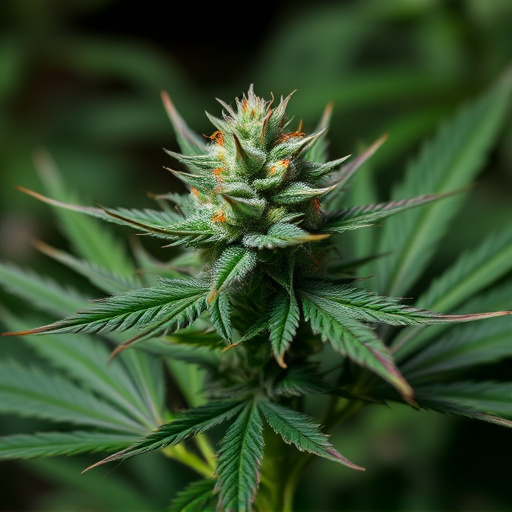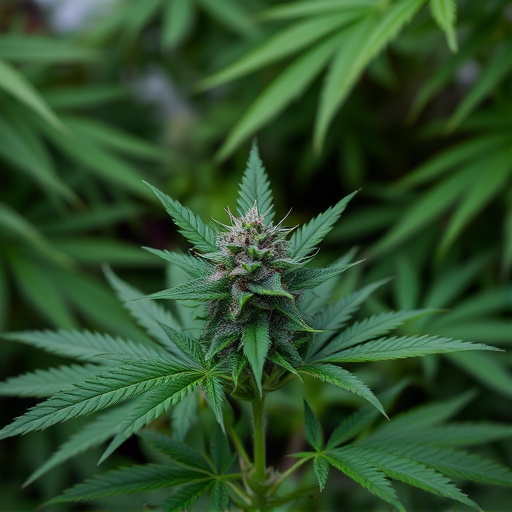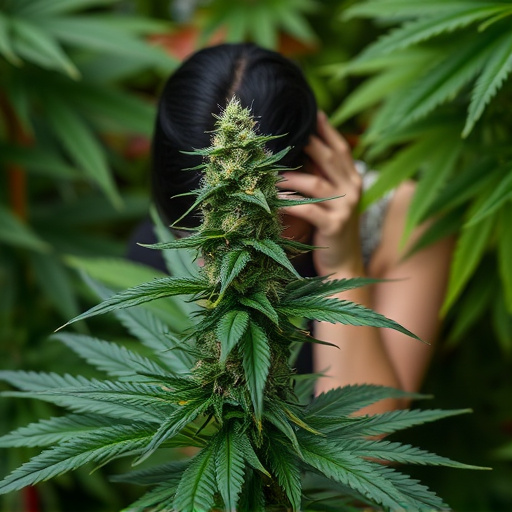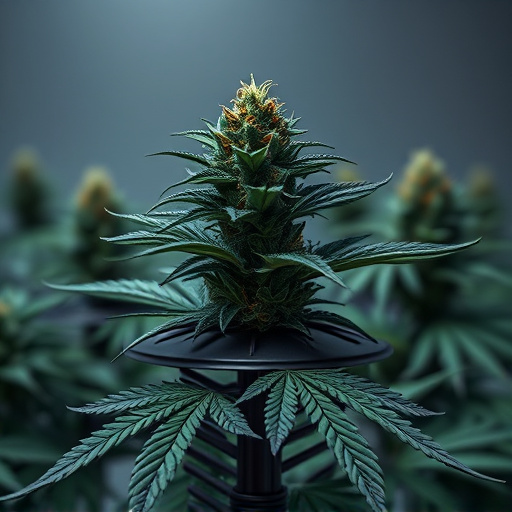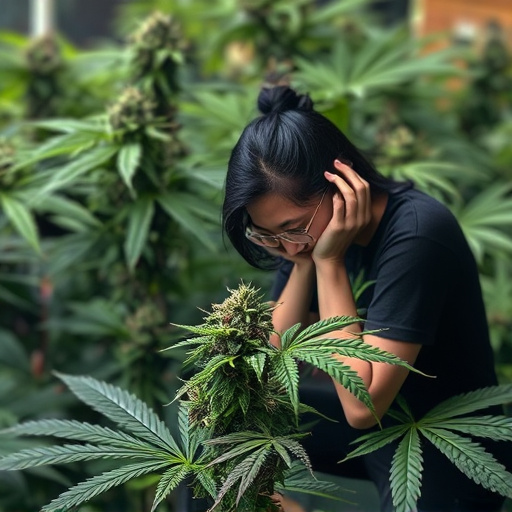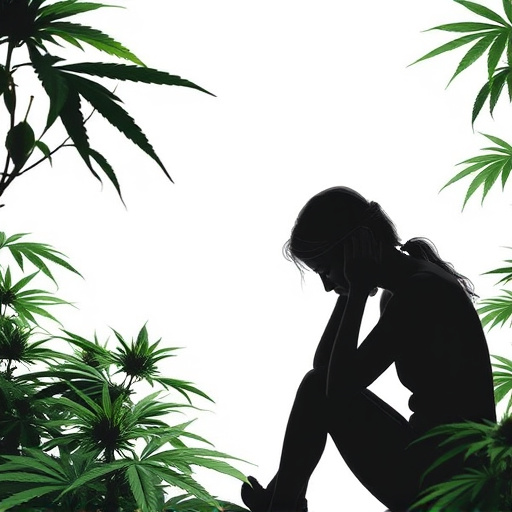Cannabis strains high in CBD and low in THC show promise as natural treatments for depression, interacting with the endocannabinoid system to reduce symptoms. However, frequent or heavy long-term use can lead to adverse mental health effects like increased risks of psychosis, anxiety disorders, and depression. Professional guidance is essential to navigate side effects, find personalized treatment options, and manage cannabis use safely, especially for those genetically predisposed or who began using at a young age.
“Smoking weed, or using cannabis, has become increasingly normalized, but understanding its side effects is crucial. This article explores the complex relationship between marijuana use and mental health, delving into both short-term and long-term impacts. We discuss how specific cannabis strains can potentially alleviate symptoms of depression and anxiety while also highlighting undesirable side effects. Learn about managing these effects and when to seek professional help for a balanced perspective on this popular substance.”
- Short-term vs Long-term Effects on Mental Health
- The Role of Cannabis Strains in Treating Depression and Anxiety
- Managing Side Effects and Seeking Professional Help
Short-term vs Long-term Effects on Mental Health
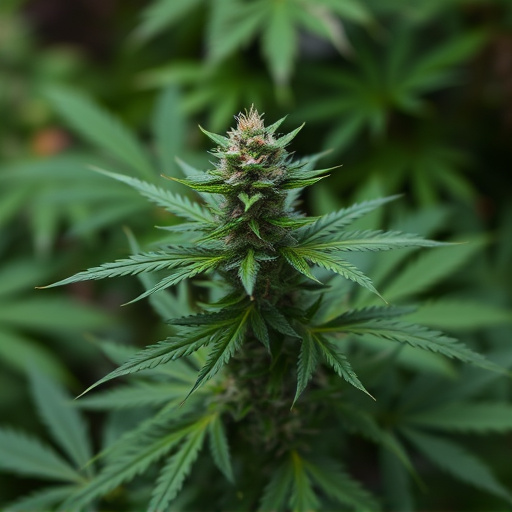
While many people debate the potential benefits of cannabis, particularly for managing conditions like depression through specific cannabis strains for depression, it’s crucial to understand that mental health impacts can differ significantly between short-term and long-term use. In the short term, smoking weed might induce feelings of relaxation and euphoria due to its interaction with the endocannabinoid system. This temporary state could offer some relief from anxiety or stress in certain individuals. However, frequent or heavy use over an extended period may have detrimental effects on mental well-being. Research suggests that long-term cannabis use is linked to increased risks of psychosis, anxiety disorders, and depression, especially in individuals with a genetic predisposition or those who start using at a young age. These long-term effects can persist even after stopping consumption, highlighting the complex interplay between cannabis and mental health.
The Role of Cannabis Strains in Treating Depression and Anxiety
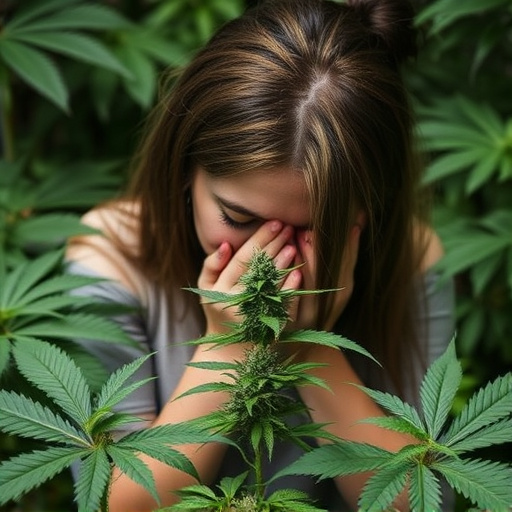
Cannabis has gained attention for its potential therapeutic effects, particularly in managing conditions like depression and anxiety. While recreational use is common, the role of cannabis strains in treating mental health disorders is a growing area of interest for researchers. Different cannabis strains contain varying levels of cannabinoids, such as THC (tetrahydrocannabinol) and CBD (cannabidiol), which have distinct effects on the body and mind.
Studies suggest that specific cannabis strains for depression may offer relief by interacting with the endocannabinoid system in our brains. Certain strains high in CBD have shown promise in reducing anxiety and symptoms of depression without the psychoactive effects associated with THC. These non-intoxicating properties make them appealing alternatives for individuals seeking natural ways to manage their mental health. The key lies in selecting the right strain, as different profiles can cater to specific needs, providing a more personalized approach to treatment.
Managing Side Effects and Seeking Professional Help
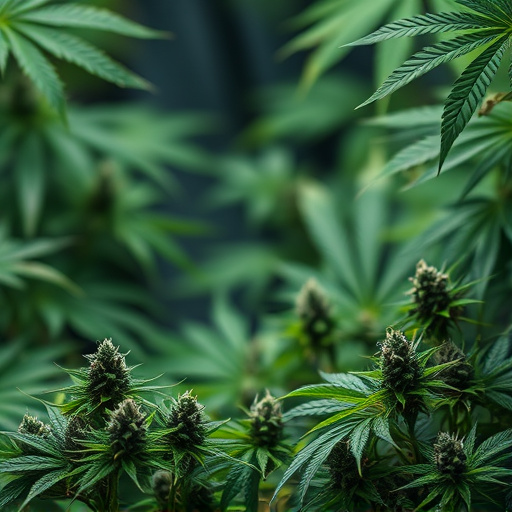
Managing side effects is a crucial step in navigating the impact of smoking weed, especially for those seeking relief from conditions like depression. While cannabis has shown potential as a therapeutic tool, it’s essential to approach its use strategically. Some individuals may find specific cannabis strains beneficial for alleviating depressive symptoms, such as CBD-rich varieties known for their calming effects. However, everyone reacts differently to different strains and methods of consumption. If side effects become overwhelming, it’s vital to reach out for professional help. Mental health experts can offer guidance tailored to individual needs, assisting in finding the right balance between cannabis use and managing any adverse reactions. They can also suggest alternative treatments or therapies to complement cannabis-based solutions.
Seeking support from healthcare professionals is a proactive step towards ensuring a safe and effective experience with cannabis for depression or other conditions. They can provide valuable insights into dosage, strain selection, and consumption methods that align with personal health goals while minimizing negative side effects. This collaborative approach allows individuals to harness the potential benefits of cannabis without compromising their overall well-being.
While cannabis strains have shown promise in managing depression and anxiety, it’s crucial to remember that smoking weed isn’t without side effects. Both short-term and long-term mental health impacts should be considered, as individual reactions vary greatly. Understanding these effects and knowing when to seek professional help is essential for navigating the complexities of cannabis use. Remember, while certain strains may offer therapeutic benefits, proper management of side effects is key to a safe and effective experience.



